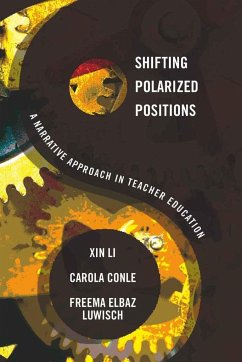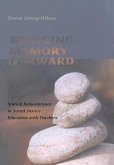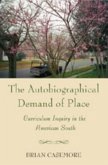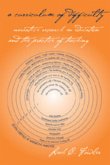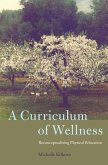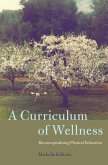The authors of this book - teachers of foundation courses to pre-service and in-service teachers in Canada, Israel, and the United States - use culturally heterogeneous settings as points of departure for inquiry and cross-cultural encounters of difference, and illuminate how, among people of differing ethnic, religious, socio-economic, political, ideological, and gendered backgrounds, the telling of experiential stories can shift personally and culturally polarized positions. Key in the work documented here is the encouragement of narrative rather than argumentative modes of expression: the instructors found inquiry more likely to stay alive when they were able to access and incorporate both the mutual interest of and the personal tensions between their students. The book illustrates how personal dynamics can subtly move individual inquiry forward, and help alleviate animosity and polarization.
«How do we know the world? How shall we teach the young to know the world? How, as this book asks, do we teach ways of thinking about these questions to those who teach others? Some know the world, and their social, communal, place in it, as a static place of fixed truths; others as a fluid place of plural truths shifting with time and context. 'Polarization' is the inevitable outcome of an education built on truths torn apart from their dependence on historical origins and on context as the ground for their status as truths. 'Polarization' is the outcome of an education bereft of the patterns of inquiry and narratives of experience that give rise to what we know and teach others. This book is a thoughtful, experientially and theoretically rich effort to explore these questions in teacher education.» (F. Michael Connelly, Ontario Institute for Studies in Education, University of Toronto)
«This book is essential reading not only for educators but for anyone involved in the resolution of conflict and the creation of sustainable societies. Through sharing their own stories, experiences, and insights, the authors tackle the question of how to change the trajectory of human evolution. How can we transcend the 'hard-wiring' that propels us to divide the world into friend and foe, us and them, and instead create identity spaces characterized by cooperation rather than confrontation. The educational roadmap they sketch directs us towards patterns of human interaction and identity negotiation where the coercive exercise of power gives way to the collaborative creation of power.» (Jim Cummins, Ontario Institute for Studies in Education, University of Toronto)
«This book is essential reading not only for educators but for anyone involved in the resolution of conflict and the creation of sustainable societies. Through sharing their own stories, experiences, and insights, the authors tackle the question of how to change the trajectory of human evolution. How can we transcend the 'hard-wiring' that propels us to divide the world into friend and foe, us and them, and instead create identity spaces characterized by cooperation rather than confrontation. The educational roadmap they sketch directs us towards patterns of human interaction and identity negotiation where the coercive exercise of power gives way to the collaborative creation of power.» (Jim Cummins, Ontario Institute for Studies in Education, University of Toronto)

